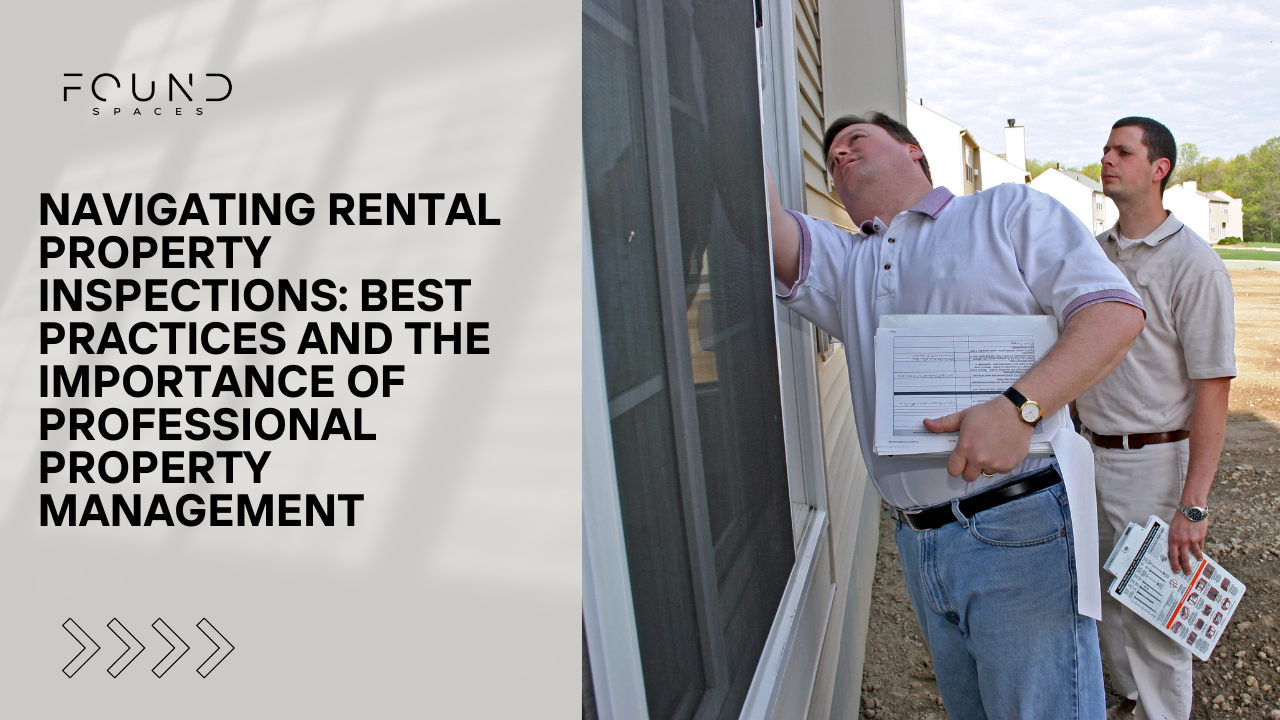Routine rental property inspections are a vital component of successful property management, as they help safeguard your investment and maintain a high standard of living for tenants. Through regular inspections, property owners can identify potential maintenance, safety, or compliance issues and address them in a timely and efficient manner.
However, navigating the complex world of rental property inspections can be challenging, especially when balancing the needs of tenants, regional regulations, and best practices for maintaining property value. This article will delve into the vital aspects of rental property inspections, from understanding their importance and types to learning how to conduct them effectively. Moreover, we will discuss the benefits of engaging professional property management services like Found Spaces to streamline and optimize the inspection process.
Property inspections serve several crucial functions, including ensuring compliance with local regulations, maintaining property value, and fostering tenant satisfaction. By keeping a close eye on the condition of their rental properties, owners can catch issues early and minimize the risk of more significant problems or costly repairs down the line. Additionally, regular inspections can confirm that tenants are adhering to the terms of their lease agreements and help build a healthy relationship between tenants and property owners.
In the following sections, we will explore the various types of rental property inspections, best practices for conducting them effectively, and the critical role professional property management services like Found Spaces play in ensuring a comprehensive and efficient inspection process.

Types of Rental Property Inspections
There are several types of inspections that property owners should be familiar with, including:
1. Move-in/Move-out Inspections
At the beginning and end of a lease term, property owners should conduct a thorough inspection to assess the property’s condition, document any existing damages, and identify potential tenant-related issues.
2. Routine Inspections
Routine inspections occur during a tenant’s occupancy and help ensure the property is well-maintained and in compliance with local regulations. These inspections provide an opportunity to address any concerns and verify that the tenant is adhering to the lease terms.
3. Seasonal Inspections
Seasonal inspections focus on specific maintenance tasks relevant to the time of year, such as preparing for winter weather or assessing landscaping needs in the spring.
4. Emergency Inspections
In the event of a natural disaster, reported safety hazard or significant tenant complaint, property owners may need to perform an emergency inspection to address urgent issues and protect the property’s value.
Best Practices for Conducting Rental Property Inspections
Follow these best practices to conduct thorough and effective inspections:
1. Develop a Consistent Schedule
Establish a regular schedule for routine and seasonal inspections to ensure that you regularly assess and address potential property issues.
2. Create a Detailed Inspection Checklist
Develop a comprehensive checklist that covers all aspects of the property, including appliances, plumbing, electrical systems, and structural integrity. This list will help streamline the inspection process and ensure that you do not overlook essential elements.
3. Communicate with Tenants
Provide tenants with advance notice before inspections, indicating the purpose and date of the assessment. Open communication helps foster a positive tenant-owner relationship and encourages tenant cooperation during the process.
4. Document Findings
Thoroughly document your inspection findings, including photographic evidence of any issues or required repairs. These records will prove invaluable for addressing tenant disputes, conducting repair work, and verifying improvements during future inspections.
The Role of Found Spaces in Efficient Rental Property Inspections
Professional property management services like Found Spaces can play a crucial role in ensuring efficient and effective rental property inspections:
1. Expert Knowledge and Experience
Property managers from Found Spaces have the necessary knowledge and experience to identify potential issues and recommend appropriate solutions during inspections. Their familiarity with local regulations and industry best practices helps ensure compliance and mitigate risk.
2. Streamlined Processes and Software Solutions
Found Spaces leverages property management software to optimize the inspection process, from scheduling and organizing inspection tasks to documenting findings and tracking repairs.
3. Tenant Relations and Communication
By acting as a intermediary between property owners and tenants, Found Spaces can ensure clear communication and foster positive relationships, reducing conflicts related to inspection scheduling and addressing any potential issues.
Conclusion
Rental property inspections play a vital role in safeguarding your investment and maintaining a high-quality living environment for tenants. By understanding the types of inspections, following best practices, and engaging professional property management services like Found Spaces, property owners can navigate the complex world of inspections with ease and confidence.
Embrace a comprehensive and diligent approach to rental property inspections and reap the benefits of a well-maintained, prosperous rental property. With the expertise and support of Found Spaces, you can ensure that your rental community thrives while maximizing the value and potential of your property investment in the competitive rental market.




